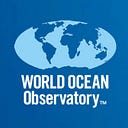RESCUE, part 30: Fresh Water and World Ocean Health
Water is the well-spring of world ocean health. Water is the font of life. It is the essential natural system that sustains us all, and thus its protection and sustainability are the key strategy for rescue. Simply put, we live in a hydraulic society — an architecture that connects us from mountain-top to abyssal plain, a riverine system without which, as an individual, a family, a community, a nation, or a planet, we are reduced to a savage state.
What will it take to capture our attention beyond the headlines and lived experience of anthropogenic climate change reaching limits that, in our complacency, we have ignored? Safe places are no longer safe. The air we breathe, the water we drink, as more and more corrupted, are immediate symptoms of consequence. Air quality alerts, unexpected floods, wildfires, are suddenly revealed as evidence and impact of what can only be described as a war on Nature that we are losing rapidly day-by-day. It does not take much imagination to compare a war zone to a flood zone, an urban fire to wilderness ablaze; the physical and human destruction approach similarity and scale; the dislocation, and disruption, and sadness evident to all. Overwrought? No, I don’t think so.
The best way to solve a problem is to strike at its source. To improve the air, defeat the emissions. To defeat the ubiquitous plastic, stop the oil that makes it. To defeat the decline, pursue an incline, up, away, therapeutic, urgently, now. To defeat the corruption of the water on which we depend, conserve it, clean it, control it, and connect it to where it is most needed. What will it take?
The beauty, still, in Nature, is that inherent in it is resilience, resistance, renewal, and reciprocity. Just as it gives tools for living, it gives tools for healing — our food from land and sea, our harvest and manufacture from it, our solace derived, our spirits lifted by it. Why do we reject the hand that feeds us? Why do we ignore the value it provides? Why, if we are so smart, do we think we can use it to exhaustion? We take water for granted, always there, at the tap, until it isn’t. Ask the good people of Flint, Michigan, about their water.
Here’s what at stake: the water demands of manufacture, the growing of food from field to ocean, the discovery and application of medicine known and unknown, the mental health derived from recreation and solace. Just that spectrum of human necessity ought to be enough to understand that the protection of water supply and security is relevant to every aspect of our future. The water cycle drives the life cycle. Water is a universal human right. The ocean provides the volume, water sourced and circulated, desalinated by Nature, and provided in an efficient, regenerative circle of service. We corrupt it at our peril. We ignore it to our loss. We abandon it and do not survive. Make no mistake: water is the sole paradigm and singular strategy for RESCUE:
R for renewal
E for environment
S for society
C for collaboration
U for understanding
E for engagement
PETER NEILL is founder and director of the World Ocean Observatory, a web-based place of exchange for information and educational services about the health of the world ocean. He is also host of World Ocean Radio, upon which this blog is inspired. World Ocean Radio celebrates 15 years this year, with more than 660 episodes produced to date. The full RESCUE series can be viewed at World Ocean Observatory.org under the SOLUTIONS theme.
